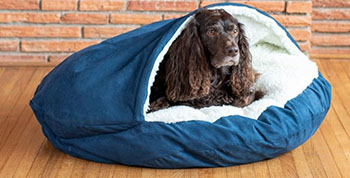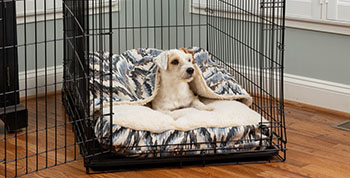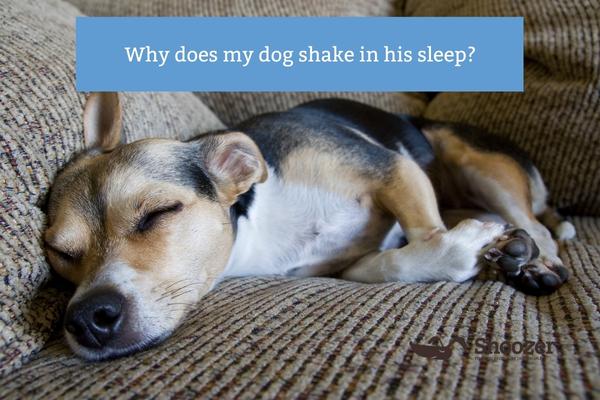Why does my dog shake in his sleep?
Many dog owners have noticed that their dogs may whimper, twitch, or even “run” in their sleep. And some dogs even shake. If you’ve seen this, you might wonder why your dog shakes in their sleep. Here are some reasons why.
Dogs May Shake in Their Sleep When They Dream
The most likely cause of your dog’s shaking in their sleep is dreaming. Although we can’t know for sure, there’s good evidence that dogs act out their dreams to an extent, and that leads to behaviors like “running” with their paws, twitching, and sometimes shaking. This is totally normal and isn’t a cause for concern.
How do you know if your dog’s shaking is due to dreaming? One clue is the size of the movement. Shaking during dreaming typically consists of small and jerky movements. A second clue is the duration. If your dog shakes for no more than a few minutes at a time in their sleep, it could indicate that they are in their REM phase when dreaming is most likely to occur. In dogs, REM lasts just a few minutes. Finally, look at their eyes. If your dog’s eyeballs are moving around under their eyelids, this is another indication that they are in the rapid eye movement (REM) phase and are dreaming.
Dogs May Shake in Their Sleep Because They’re Cold
Is your dog cold? Cold dogs shake, just as cold humans do. If your dog is shaking while sleeping in a curled up position, that could indicate that they are simply cold. Crank up the thermostat, give them a blanket or put them in a little doggie sweater, and make sure they’re in a comfy bed, and the shaking will go away.
Dogs May Shake in Their Sleep Due to a Health Condition
What if you suspect your dog’s shaking isn’t due to dreaming or to hypothermia? Sometimes shaking in sleep can be a sign of a medical condition that needs attention.
Seizure or epilepsy is the most likely medical cause of shaking during sleep, since it’s easy to confuse it with dream-shaking. Like shaking during a dream, shaking during a seizure can last a couple minutes at a time, and it may appear that the dog is sleeping, even though seizures can come on while a dog is awake or asleep. However, shaking during a generalized (grand mal) seizure is likely to look like intense convulsing rather than small, jerky movements. A dog may also drool or foam at the mouth and could even lose control of their bowels and/or bladder during a seizure.
A number of other medical conditions can cause dogs to shake, but in the following conditions the shaking is not limited to sleep but may occur at any time:
– Shaker syndrome, aka Generalized tremor syndrome (idiopathic cerebellitis)
– Chronic kidney disease or kidney failure
– Poisoning
– Hypoglycemia
– Addison’s disease
Go see your vet if your dog is shaking and you don’t know why. Keep note of any other signs, symptoms, and unusual behaviors you notice to help your vet diagnose the underlying problem.
When Your Dog Shakes
Most of the time, when your dog shakes it’s totally harmless and it’s just a result of them dreaming or being cold. However, it can be a seizure or a sign or a medical disorder, so talk to your vet if you have any concerns.


















